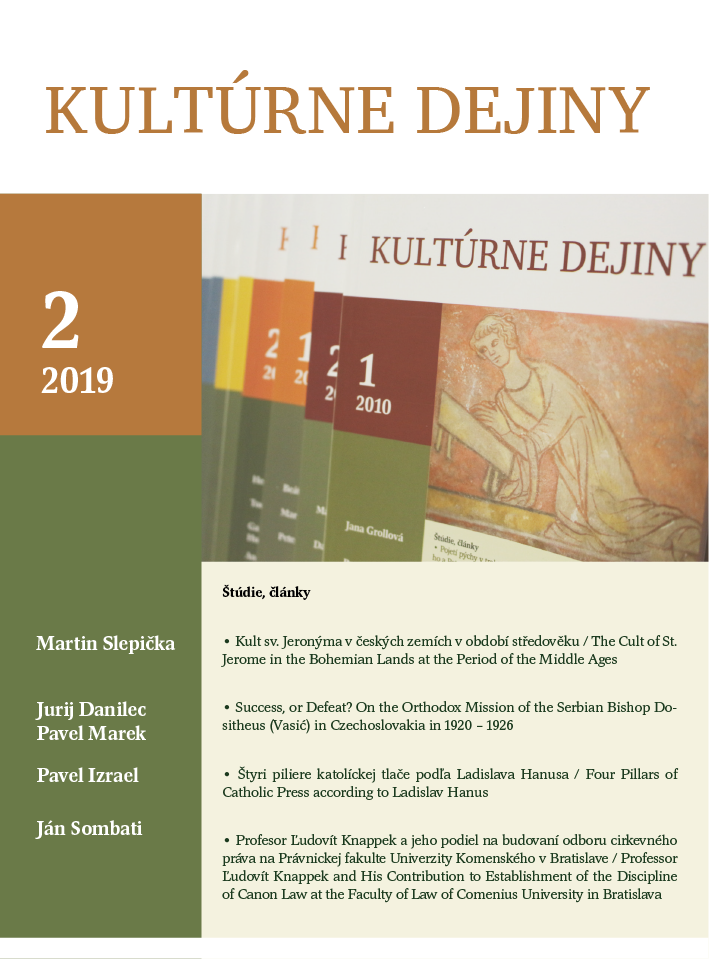Success, or Defeat? On the Orthodox Mission of the Serbian Bishop Dositheus (Vasić) in Czechoslovakia in 1920 – 1926
Success, or Defeat? On the Orthodox Mission of the Serbian Bishop Dositheus (Vasić) in Czechoslovakia in 1920 – 1926
Author(s): Jurij Danilec, Pavel MarekSubject(s): History, Local History / Microhistory, Theology and Religion
Published by: VERBUM - vydavateľstvo Katolíckej univerzity v Ružomberku
Keywords: Dositheus (Vasić); Czechoslovakia; Serbian Orthodox Church; mission;
Summary/Abstract: The formation of the Czechoslovak Republic in 1918 created a new situation for the nations still living in the Habsburg monarchy. Fundamental changes happened not only in terms of the constitutional law conditions, but also in all areas of the life of the society. The changes also affected the area of the church and religion. The democratic political regime guaranteed people freedom of religion. This fact is reflected in the reinforcement of secular tendencies, but at the same time there were changes and a revival of activities both inside established churches and in churches and religious societies which the political regime of the monarchy had suppressed. The inter-church transfer movement also affected the community professing the values of Eastern Christianity. The Orthodox movement had a spontaneous and unrestrained character. For this reason, the inexperienced state administration invited the Serbian Orthodox Church to help organize the Orthodox Church in Czechoslovakia, and so it sent a mission led by Dositheus (Vasić), the bishop of Niš, to the member country of the Little Entente. The bishop, who was mainly active on the territory of the Czech lands and in Subcarpathian Ruthenia, tried to establish the Orthodox faith in the Czech lands within the newly established National Church of Czechoslovakia (Hussite) and supported the emancipatory efforts of a group of Orthodox Czechs who had converted to Orthodoxy before World War I. In Subcarpathian Ruthenia, he sought to create a Carpathian Orthodox eparchy under the jurisdiction of the Serbian Orthodox Church. The authors recall the main features of Dositheus’s Orthodox mission and evaluate its results. They conclude that the mission did not meet the original expectations as a result of both objectively unfavourable circumstances and its own errors. On the other hand, the authors perceive the bishop’s work as an important chapter in the history of the Orthodox Church in Czechoslovakia, which extends to Czechoslovak-South Slavic relations in the interwar period.
Journal: Kultúrne dejiny
- Issue Year: 10/2019
- Issue No: 2
- Page Range: 197-227
- Page Count: 31
- Language: English

